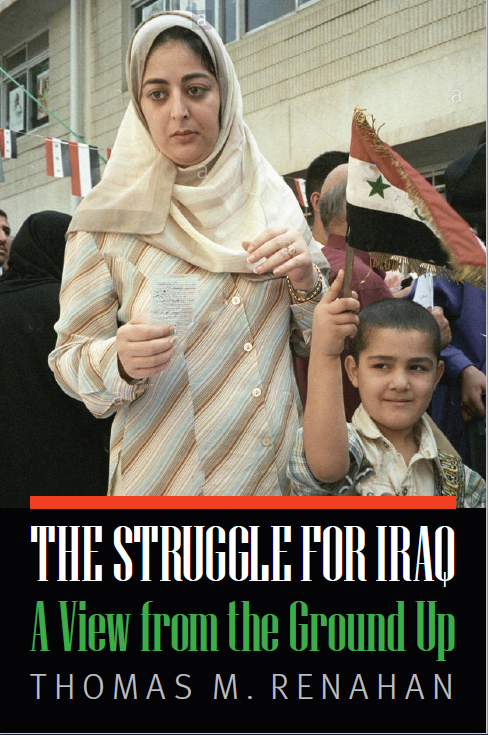In November and early December 2014 we conducted a telephone survey of 642 citizens from all over Iraq. The survey reached respondents living in each of the country’s 206 sub-districts.
The chief objective of the survey was to listen to and channel Iraqi voices, from every corner of the country, and learn how to respond to the crisis created by Daesh. The Daesh campaign to seize control of Iraq is now in its second year. The group occupies most of western and northern Iraq, despite a counter-campaign by Iraqi government forces and Shia militias and a US-led bombing campaign on Daesh targets. In the midst of the cacophony of media headlines, there is no real sense of the Daesh impact on the Iraqi public. Yet local public opinion is critical to the outcome of the current war in Iraq and of the international strategy to defeat Daesh.
For policy-makers seeking to reverse Daesh gains in Iraq’s Sunni provinces, this survey of local perceptions offers 4 strategic conclusions.
First, though it represents a shrinking percentage of everyday Iraqi citizens, there is still strong support for Daesh in communities throughout Anbar, Ninewa, Salaheddin, Kirkuk, Diyala and even parts of Baghdad province. Driving this support, in the view of most survey respondents, has been a pattern of abuse and sectarian bias on the part of Iraqi security forces and government institutions in the recent past. These abuses and biases are both perceived and real; targeted corruption, incidents of violence, and other acts of impunity within communities have each had their effect in turning large parts of the Sunni population against the central government. Daesh, meanwhile, has been successful at making certain services, and especially security, appear more effective in key areas under its control. A successful strategy to defeat Daesh must ensure that the subsequent void is not filled by a return of government abuses, sectarian reprisals or, less obvious, a backslide in those essential and social services for which Daesh has been, in the opinions of some, an improvement over Iraqi institutions.
Second, though a large number of inhabitants in Sunni provinces now oppose Daesh, there is no denying that Daesh has been a destructive force with long-term consequences for social and political cohesion across large swathes of Iraq. Quite apart from the physical devastation meted out on cities like Mosul, Fallujah, Tikrit, and dozens of others, the conflict with Daesh has also torn apart longstanding structures of authority and conflict resolution within communities. Tribes in most parts of Daesh-controlled Iraq are weakened, as are local governments, local police, and past networks of influential religious figures who might have been voices of moderation and reconciliation. With some variance from one locality to another, these have been replaced by upstart, sectarian, and often politicized militias, Sharia courts, and other non-traditional enforcers. Today’s Daesh-controlled areas will require intense social and institutional rebuilding – a critical challenge for the central government. The resurgence of new and informal power-brokers will have sweeping consequences for other parts of the country as well. This is especially true for mixed cities like Baghdad, where fears and tensions between communities have returned to levels not seen since 2006-2007. Much of this tension is due to the strengthening of Shia militias as a quasi-official, though less-accountable security force, one that nevertheless has deep divisions of its own between competing interests (between Iran-backed and more nationalist elements, for example). That these divisions will spark real conflict within mixed communities and within the Shia community itself remains a distinct possibility for the foreseeable future.
Third, crucial progress toward reconciliation, transitional justice, and national unity will depend on the successful articulation and embodiment of those concepts in Iraq’s print, television, and social media. More than ever Iraqi’s are failing to imagine themselves as part of a national whole, choosing instead to affiliate with much narrower denominations of ethnic, tribal, or religious identity. To now, the media in Iraq has been a driver of social disintegration, rather than an antidote. This trend must be reversed if any process of national rebuilding is to be successful. With its widespread penetration, and its ability to garner confidence and trust, social media is perhaps the best place to start this process of rehabilitating the Iraqi national identity. But ultimate success will only come through the depolarization of Iraqi media as a whole.
Finally, it remains for this survey to conclude that Daesh is not Iraq’s principal strategic challenge. Rather, Daesh is a manifestation of Iraq’s deeper problems: the weakness of the Iraqi state, its inability to protect and deliver services to all communities, the absence of rule-of-law, especially in Sunni areas, the lack of Sunni political representation and leadership, and the endemic presence of militarized Shia militias. To be sure, Daesh in turn aggravates these problems, both through its actions and through the reactions it elicits from competing interests. But Daesh is an outcome as well as a cause. If Iraq does not address the factors that led to the rise of Daesh, Daesh may be defeated only to be replaced by a similar phenomenon some months or years in the future — as Daesh replaced al-Qaida in Iraq. Divisions between the Iraqi communities are deepening by the day. The worsening lack of trust among the people themselves, and with their elected officials, is what makes the rise of militarized, armed groups — Daesh chief among them — possible, now and in the future. Only through concerted effort at comprehensive rebuilding – from physical reconstruction to social rehabilitation at the community, even individual level – will Iraq begin to harbor real and long-term resilience against catastrophes that today happen to be in the form of Daesh.


